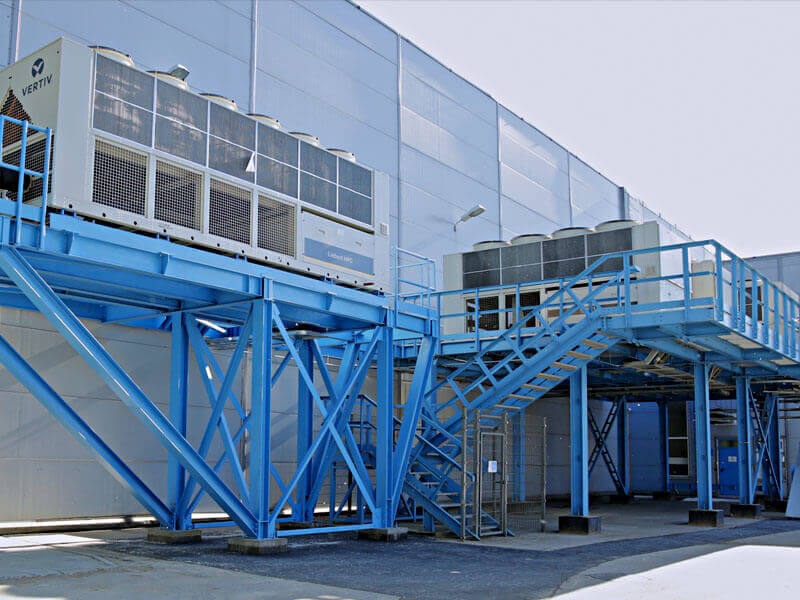Energy and the network edge are still very much front of mind after a fantastic but frenetic few days in Monaco last week at DataCloud Europe.
By the time the event wrapped up on Thursday, ‘energy levels’ were beginning to wane slightly and, amid the beautiful Monaco setting, thoughts were even ‘edging’ towards the promise of upcoming summer vacations.
But a little time to reflect has helped to recharge batteries and - thanks to the great content and conversations at the show - even ‘power’ new thoughts around edge computing and other key issues.
Rob Johnson – Hyperscale and Cloud Data Centers Replaced at the Network Edge
First off, it was great to be able to welcome Vertiv CEO Rob Johnson to Monaco and to see him share his insight on edge, and other strategic technology issues.
During his presentation, Rob discussed the long-term research Vertiv has undertaken on specific use cases at the network edge – we counted more than 100 – which were then mapped into four key archetypes. But Rob also argued that some aspects of edge computing are not new. For example, cell towers will be a key part of edge critical infrastructure; Rob recounted how Vertiv has been supporting these sites with power and other equipment for tens of years across the US, Europe and even in China.
Rob also described how, far from hyperscale data centers and cloud being replaced by edge – as some commentators have warned - there will be an evolution of a ‘barbell’ distribution of infrastructure. Large cloud data centres on one side will do a lot of big data crunching and edge devices on the other side will gather data and filter what needs to go up to the cloud.
Specifically, on that topic of edge infrastructure, there were some interesting insights shared at the show by other speakers. I must say that I didn’t agree 100 percent with everything I heard but it was all certainly food for thought.
Is the Impact of Edge Computing Overestimated?
One reoccurring theme was that some of the growth around edge compute may be overhyped right now. I can certainly understand that; the idea of more than 50 billion IoT devices being added by 2020 sounds fantastical in one sense but also perfectly feasible in another. I think Rob addressed that point well in his presentation when he referred to Amara’s Law which states that we tend to overestimate the impact of technology in short-term and underestimate in the long term.
Yes, edge computing demand may take longer to develop that some forecasts predict but you only have to look at the number of connected devices available now – from phones to cars to appliances - to realise how that might scale in the future. Being ready for that growth means putting critical infrastructure in place now which is why Vertiv is investing so heavily in research to understand where the greatest edge demand is materializing.
Given that expected demand, concerns have also been raised about a long-term lack of power in some key data center hubs – including most recently from the Dutch Datacentre Association - which will probably require investment in micro-grids, and other forms of distributed energy generation in the future. At DataCloud, I was also able to meet representatives of newer data center markets such as Sweden, Denmark and other countries in the Nordics with relatively cheap and available (and mostly green) power that will continue to attract new data center capacity.
And speaking of new capacity, I was also pleased to be able to discuss the long running technology partnership which Vertiv has had with Russian colocation provider IXcellerate. The company’s CEO Guy Willner was also at DataCloud and we shared details of some of the innovative Vertiv technology IXcellerate has deployed including the use of Lithium-Ion batteries. The disruptive battery technology enables data center operators to realise benefits including smaller and lighter footprints, faster charge/discharge rates, and higher energy densities.
Edge Computing demand is on the rise, but who will manage it?
But while edge computing was certainly one of the key themes of DataCloud, there were other equally important topics discussed. For example, I was lucky enough to be asked to part of a panel on workforce development and diversity alongside organisations such as CBRE and UK technology industry group TechUK.
We want to create an environment where any employee feels comfortable and has opportunities to achieve their goals. For example, Vertiv has developed The Graduate Commercial Engineering Programme designed to accelerate students’ transitions from a graduate into the business world. We’ve already seen some great success stories from the last intake which have resulted in students being offered full time positions. We are also continuing to develop our approach to diversity and I look forward to sharing progress in that area in future posts.
Overall, DataCloud was a great experience with a lot of insightful content around edge and other issues. It’s hard to say how many of the predictions and prognostications - made on stage, over coffee or at the bar - will come to pass but I suspect that by next year’s event we’ll see if Amara’s law holds true for some of them at least.







